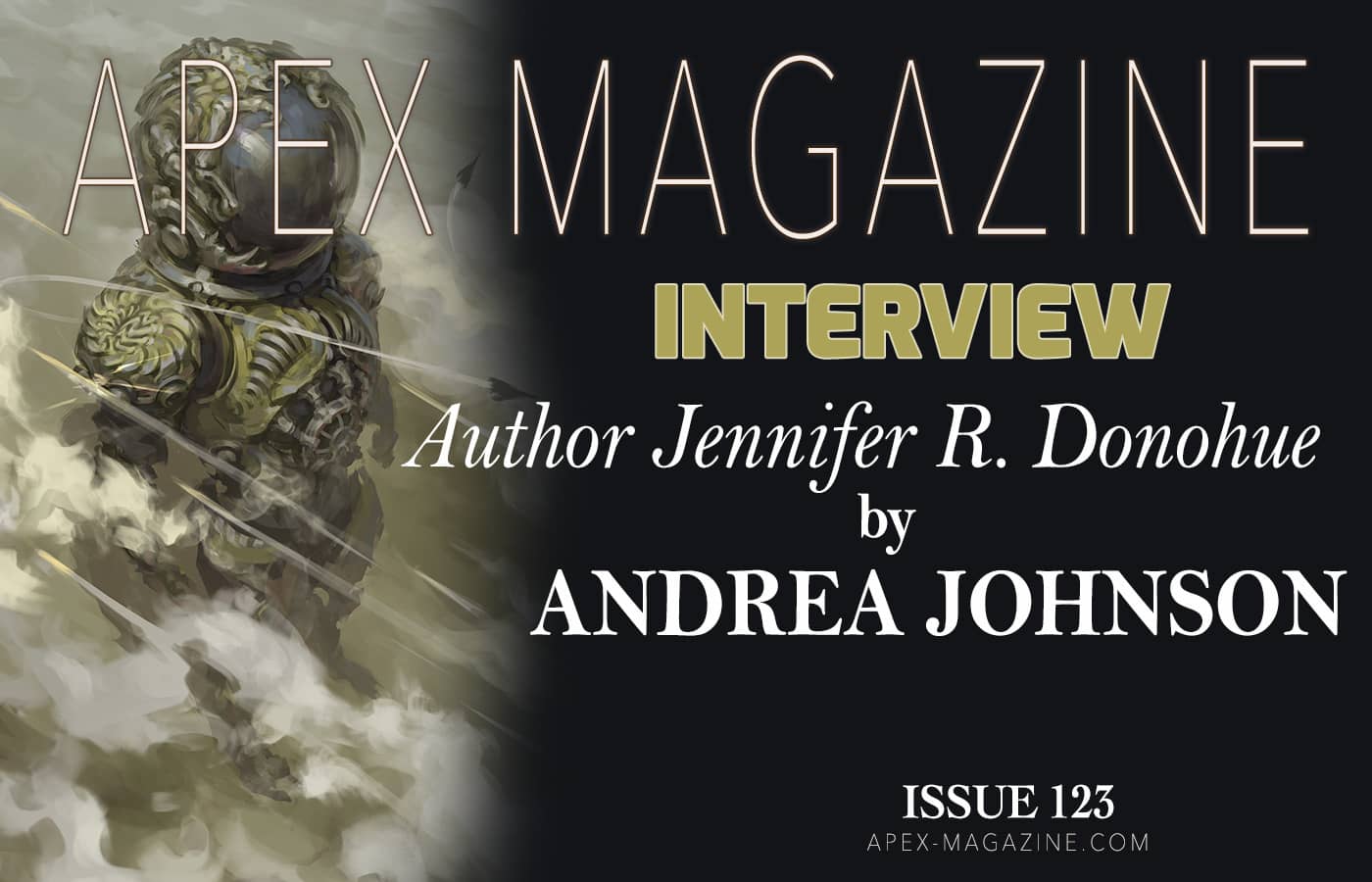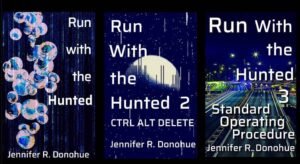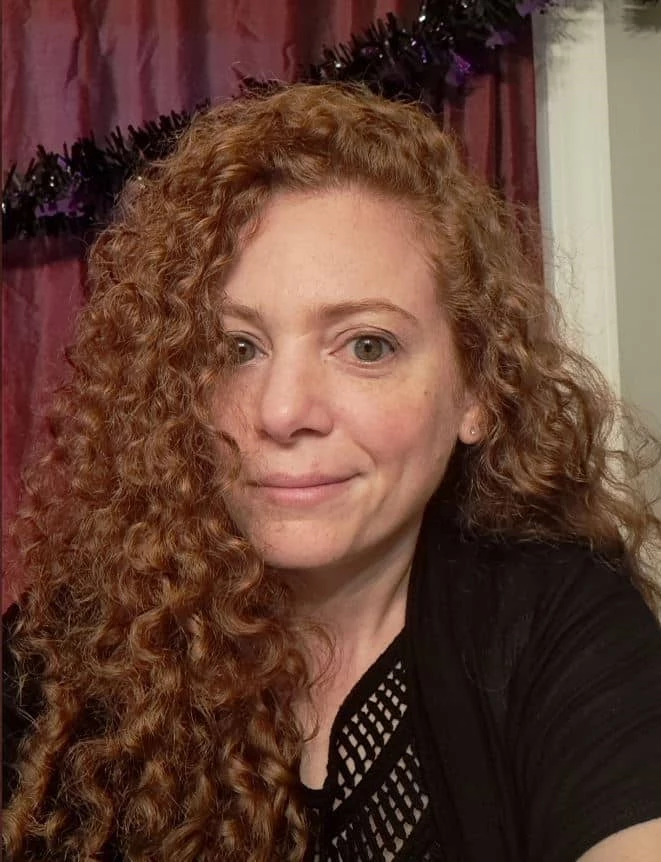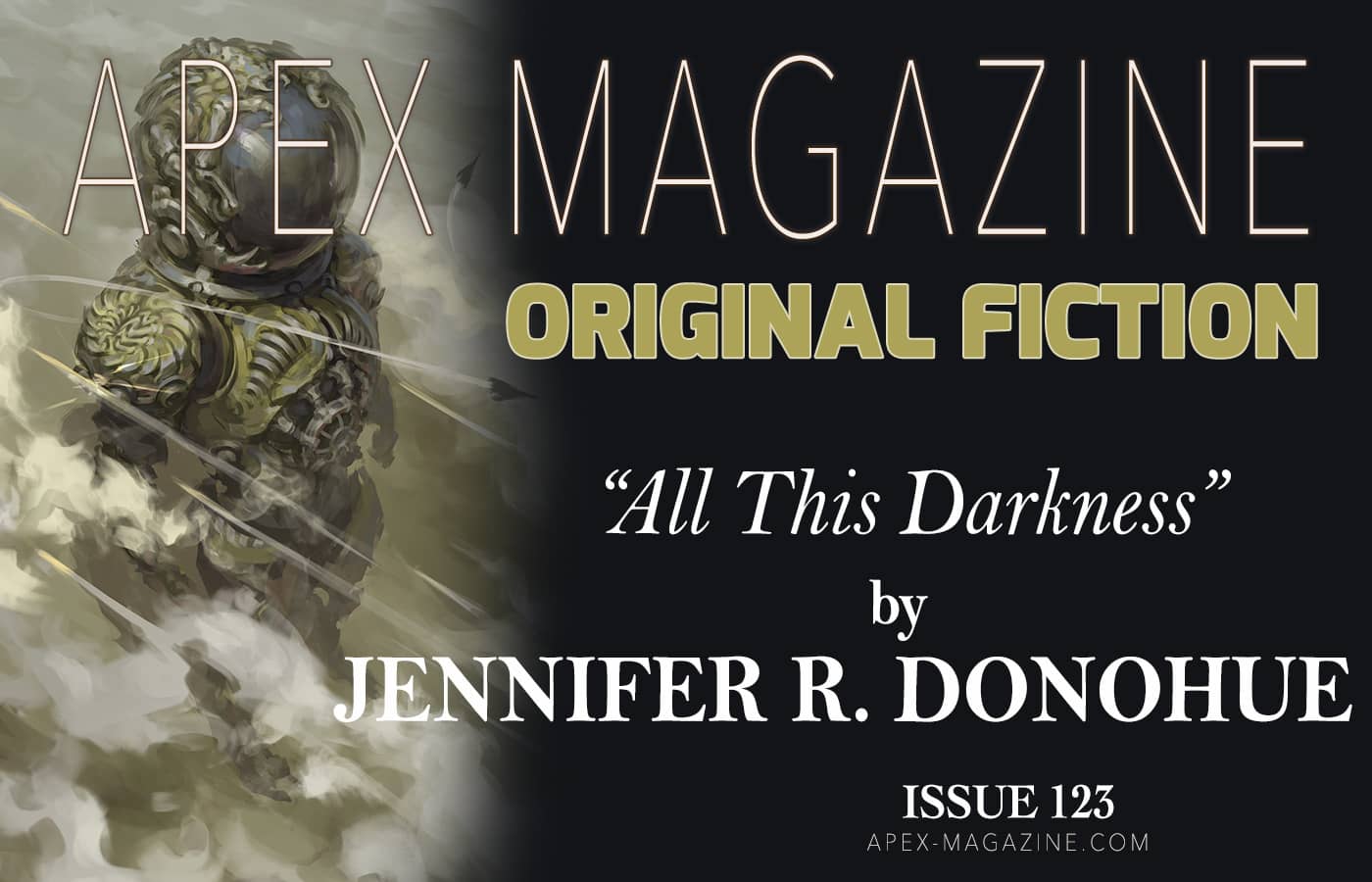
If writing prompts are candy, and you just came out of the candy store known as Jennifer R. Donohue’s “All This Darkness,” I have great news for you. This interview is the candy factory, by which I mean you’re about to receive some premium word candy followed by a near factory load of inadvertent writing prompts.
There’s an atmosphere to “All This Darkness,” a fog that feels like a secret that can’t be told because the language it was spoken in has been forgotten. In the never spoken language of mountains, the mountain calls to its people. It calls to the people who become miners, who take canaries with them, who die of black lung. Their children can’t wait to be big enough to wear the miner’s helmets and boots. When the mines closed and the jobs were lost, maybe it’s because we killed what kept the mine alive—we forced its people to live away from the mountain’s heart. The world is judgmental, but a mountain will never judge its children and will always call to them and welcome them home. Because fantasy is the most beautiful thing in the world, all of these things can be true in a story.
With prose that, at first, appears deceptively simple, Donohue builds entire worlds with nothing more than a double baker’s dozen of words. For example:
There was once an age in which mountains walked, before they became rooted, and now, in control of its heart once more, our mountain will walk again.
Oh, that sentence sets my mind and heart ablaze! How long has this mountain been calling out, how long has it been waiting? Does it remember the days before it was rooted, before its people decided to live above ground, separating themselves from the heart of their mountain? And with the pluralism of the unnamed narrators in Donohue’s story, no one need ever feel alone.
And now that I’ve put you in a serious mood, you deserve a chuckle and a smile. Donohue delivers that as well. You’re about to get a kick out of learning where her idea for this story came from and where the title came from. Donohue and I agree that stories don’t have to answer every question, and that there is magic in the unknown, so I feel lucky that she was willing answer every question I sent her, including discussion of mountains of dubious intentions and working in a public library during the Covid-19 pandemic.
Donohue has been steadily publishing fantasy, horror, science fiction, and cyberpunk short stories and novellas since 2016. Her work has appeared in The Future Fire, Daikaijuzine, Dreamforge, Andromeda Spaceways Magazine, Luna Station Quarterly, Escape Pod, Starship Sofa, Mythic Delirium, and in multiple anthologies. She is the author of the cyberpunk heist series Run with the Hunted. She lives in New York State with her family and her dog. You can learn more about her fiction by checking out her website Authorized Musings and by following her on Twitter where she is @AuthorizedMusin.
I feel like I’ve teased you enough, let’s get to the interview!
APEX MAGAZINE: When the mines welcomed the young people home, I recognized that feeling and felt it as a warm, safe hug. Where did the idea for this story come from, and what were you thinking about as you wrote it?
JENNIFER R. DONOHUE: The story actually started out as kind of a joke about black licorice! So many people very strongly dislike it, and I have always loved it. We used to get novelty coal candy that came with a little pewter sledgehammer and a miniature coal bucket. (I remember my grandmother having a little coal bucket, anyway, I might’ve just made up where it came from.) It was shiny and blocky, and I remember it looking just like coal.
I initially wrote up to the abandoned theater part of the story and then put it down for a couple of months because I didn’t really know what was next. This isn’t unusual to my process, though; most of the time, I write to see what happens next, rather than following a plan or outline. I will say, I did want to include canaries at some point, somewhere, but I could never make them naturally fit. So that was a part of the plan that just didn’t work out!
AM: Are you or your family from a mining town? How did you tap into that desperate feeling of a dying mining town?
J.R.D.: My dad’s parents both came from Shamokin, Pennsylvania, which was a coal town that also had several movie theaters, a couple of factories, and multiple Catholic churches, including the one with the coal altar that I reference in the story. I’ve heard their stories about how things were when they grew up, and then I’ve been there a number of times over the years and the way those pictures don’t quite overlap really snagged its hooks in me. In some ways, I feel like the stories of the mines aren’t really my stories, though my generational remove is only a couple steps further than that of my narrators.
AM: I keep asking myself, who is we? So instead, I’ll ask you. Who is we? Is we a few people or a few hundred people? I admit, I love the mystery of not knowing how many people we is, but I am curious. How many people does it take to stoke the heart of a mountain?
J.R.D.: We is a handful of people, maybe seven I’d say, who assumed for their entire young lives that they would’ve been the next generation in the mines and then they ... weren’t. But that’s the kind of detail that I think is interesting to leave to the reader, as I don’t think that every question in a story needs to be answered. Sometimes it’s good to leave room for the imagination to breathe.
Also, what a great question: “How many people does it take, to stoke the heart of a mountain?” I guess not very many, if the will is there. Maybe a different mountain would require more. Maybe there’s a mountain out there that only needs one willing soul.
AM: I loved the atmospheric style of this story! The line that gave me shivers comes right at the end: "There was once an age in which mountains walked, before they became rooted." Can you tell us about your writing process for this story? Once the idea came to you, how did you determine how the story would be told and who would be telling it?
J.R.D.: I didn’t consciously decide from the get-go that the story would be collectively (and namelessly) narrated, but I do have a fondness for it that might be called a motif at this point. The transformative nature of those narrators wasn’t in my brain at the start of the narration; at that point, I was thinking of the licorice, the town, and the mood. Once I brought it to the mines, though, I feel like that vital click happened, and I finished it all in a rush. After that tipping point, I was in some ways writing to a Call of Cthulhu reference—“A mountain walked or stumbled”—while also thinking about things like glaciers.
AM: The mountain can now write its own destiny. What do you think it will do next?
J.R.D.: In theory, I guess it will scour the countryside in a somewhat glacial way, maybe seeking the ocean. Which isn’t to say I think that coal formation has anything to do with oceans (I think it’s swamps), but rather more that’s how my own psyche works. The title comes from the Bruce Springsteen song “Land of Hopes and Dreams,” and the full line is “Well tomorrow there’ll be sunshine, and all this darkness past,” which is hopeful in a far different way from a mountain of dubious intentions reacquiring its ability to roam the earth at will. But not from the mountain’s perspective, or that of our narrators.
AM: Your day job involves working at a public library. What’s the last year been like for you and your library?
J.R.D.: We’ve had a very interesting time, to be sure! The library is a vital part of the community, and in our particular case, it’s sometimes the only access that people have to the internet or the only place in town to get paper tax forms. We have a lot of children’s programs throughout the week, from story time to STEAM programming, and a lot of people rely heavily on our interlibrary loans.
The last day we were open was Saturday, March 14th. I run a writing workshop on Saturday afternoons, and throughout the week I’d been feeling more and more hesitant about gathering everybody together in our meeting space, and after talking to my boss on that Friday, ended up canceling. After we closed that day, we stayed closed for almost two months, with some of us doing work from home. I kept the writing group active via email chain as Zoom was not yet in our vocabulary, giving them writing prompts the way I would during our physical meetings and looking forward to people sharing what they came up with.
When we started to reopen, first it was curbside service (in our case, we have an attached gazebo that’s our main entryway, and that’s where we would put books for people to do a no contact pickup). Then opened for browsing by appointments only for up to 10 people at a time for 10 minutes. Now we’re not limiting the time people stay other than having our chairs blocked off or put away so that patrons don’t linger. However, we’re still limiting it to 10 patrons at once.
There was also a lot of discussion, both at our library and in Libraryland, about quarantining books, wiping down books, wiping down surfaces in the library, whether gloves were helpful/necessary, how to enforce mask wearing and social distancing for patrons, you name it. I will say, our freestanding self-checkout has gotten more use this year than any time in its short life prior! I don’t know the statistics, but I know our digital holdings also received far more of a workout—between Libby/Overdrive and Hoopla, which we had literally just added at the start of 2020 (or maybe the end of 2019...time is a little indistinct now!)
AM: I’m a sucker for heist stories, so I NEED you to tell me all about your cyberpunk heist series Run with the Hunted!
J.R.D.: My Run With the Hunted cyberpunk novella series is something that I started for fun, and just kept on rolling. There are three main characters who comprise the team: Bristol, Bits, and Dolly, and each one of them has a particular set of skills that they bring to the table. Each novella is narrated by a different team member, and so Bristol is our introduction to the series and the world. She’s a chic party girl with carefully honed social skills who appreciates the finer things in life, and so she provides a great point of view for a diamond heist that turns out to be more than that.
Bits is the hacker and the tech expert, so the second book revolves around acquiring data and what goes down in VR and how that can affect a person mentally. It is, hands down, the most migraine thing I have ever written. It’s also a road trip, because I’m a sucker for road trip stories. There’s a certain mood that they foster.
Dolly is the group’s violence specialist and also a gearhead, so guns and cars are her deals. Book three is a dog heist which was an absolute delight to work through. I’m very much a dog person, so being able to (safely!) include them in fiction is always something that I love to do.
Over the course of the books, Run With the Hunted becomes a story about a found family of female criminals, though it doesn’t necessarily start out that way. I love the different voices of all three narrators and the way different perspectives affect how each story gets told. Book four is in the works, and I’m going to write them until I stop, essentially. Their annual release date is October 31st, and I’ve also written several Run With the Hunted short stories that have appeared on my Patreon and a couple that are currently in slush piles.
AM: Who are some of your favorite writers, and why is their work important to you?
J.R.D.: This is always such a hard question, because I’ve read so many books in my reading life and so much has been important at different times and for different reasons. I love Shirley Jackson for her atmosphere and for her turn of phrase. The Haunting of Hill House is a novel that I didn’t read until I was an adult, and then read two or three more times. Eleanor’s flights of fancy throughout, and the details that she seizes upon, are just perfect.
I also really love Ursula LeGuin’s Earthsea trilogy (I confess, I haven’t read the later books.) They’re short, but there’s a whole world packed in there, the way you understand the characters and the setting is just so elegant.
I always talk about Daphne DuMaurier, and Rebecca most specifically. That’s a book that really had a lot of impact on how I think about place as character (and in many ways really set me up to embrace Hill House completely), and also so much about how interpersonal relationships play out in both the presence of people and also their absence.












